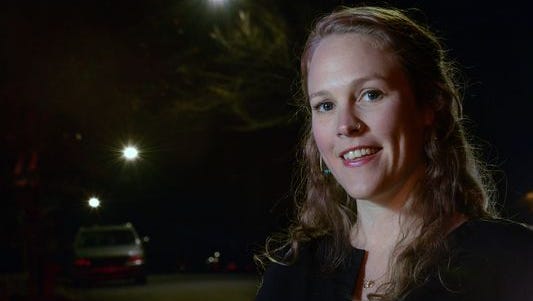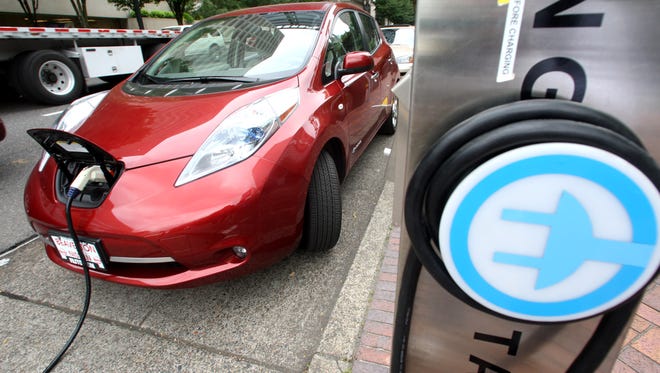
ASHEVILLE – In an ambitious move that members of the public said was needed to help head off climate change disasters, Buncombe County leaders voted to expand the state’s largest public solar boom and transition to zero-emission vehicles.
The six Democratic and one Republican member of the county’s Board of Commissioners voted unanimously Oct. 19 for the solar and vehicle resolutions.
Maggie Ullman, a recently declared 2020 City Council candidate and member of the county’s newly formed Environmental and Energy Stewardship Subcommittee, which recommended the resolutions, spoke at the commissioners meeting, saying the programs saved money and made good business sense. But Ullman, who was also the city’s first sustainability officer, pointed to climate-driven disasters, such as the August tropical storm flooding that killed six in Haywood County.
“So, if we aren’t going to act, no one is. We have to take action. Climate change is here. That’s why I am just so proud to be part of a conversation to pursue these resolutions,” she said.
The county and city are already engaged in a large-scale solar installation at 39 local government buildings. The county is paying for its projects with a $12.4 million, 15-year bond, with a potential $2.2 million rebate from Duke Energy.
More:Buncombe County’s $10 million solar panel project underway at Fairview Library
The projects are forecast to save the county between $14 million and $17 million in energy costs over the next 30 years and make up the largest public solar project in North Carolina, which ranks second in the nation for solar power.
With the resolution the county will seek to greatly expand that, doing feasibility studies at Buncombe County Schools, Asheville City Schools and AB Tech. The goal will be to “install on‐site renewable electricity generation systems on 100% of the facilities where it is technically feasible and prudent (considering roof conditions, land availability, etc.) and financially responsible,” the resolution says.
With vehicles, County Manager Avril Pinder is already moving the local government’s fleet toward more efficient cars and trucks. But the resolution would codify that, meaning it would require a vote by commissioners to change it.
Commissioners Chair Brownie Newman, an environmental advocate and co-owner of a company that facilitates solar projects, said the resolution would not mean the county would only purchase “tiny” vehicles. Instead, Newman said it directs county departments to purchase the cleanest vehicle in the class that they needed, be it a car or large truck.
“It’s a very sound power policy, and there’s many great new options coming forward from the marketplace that present great options in a large range of different classes of vehicles.”
Speaking during public comment, Black Mountain resident Everett Pittillo supported the changes, but said the county should go even further, replacing old equipment that can continue to waste energy.

“If we replace everything with LED lights, if we replace the internal equipment with more efficient equipment, then you’re already seeing more of a (return on your) investment,” Pittillo said.”
Corey McVay, a student at UNC Asheville where she is also the climate analyst for the university office of sustainability, said she signed a petition calling for such solar projects when she was a local high school student. McVay said the need for reducing carbon emissions in these ways was even more urgent now.
“We need to remind ourselves that this is a problem that is now, and we want to start action as soon as we can.”
Joel Burgess has lived in WNC for more than 20 years, covering politics, government and other news. He’s written award-winning stories on topics ranging from gerrymandering to police use of force. Please help support this type of journalism with a subscription to the Citizen Times.
